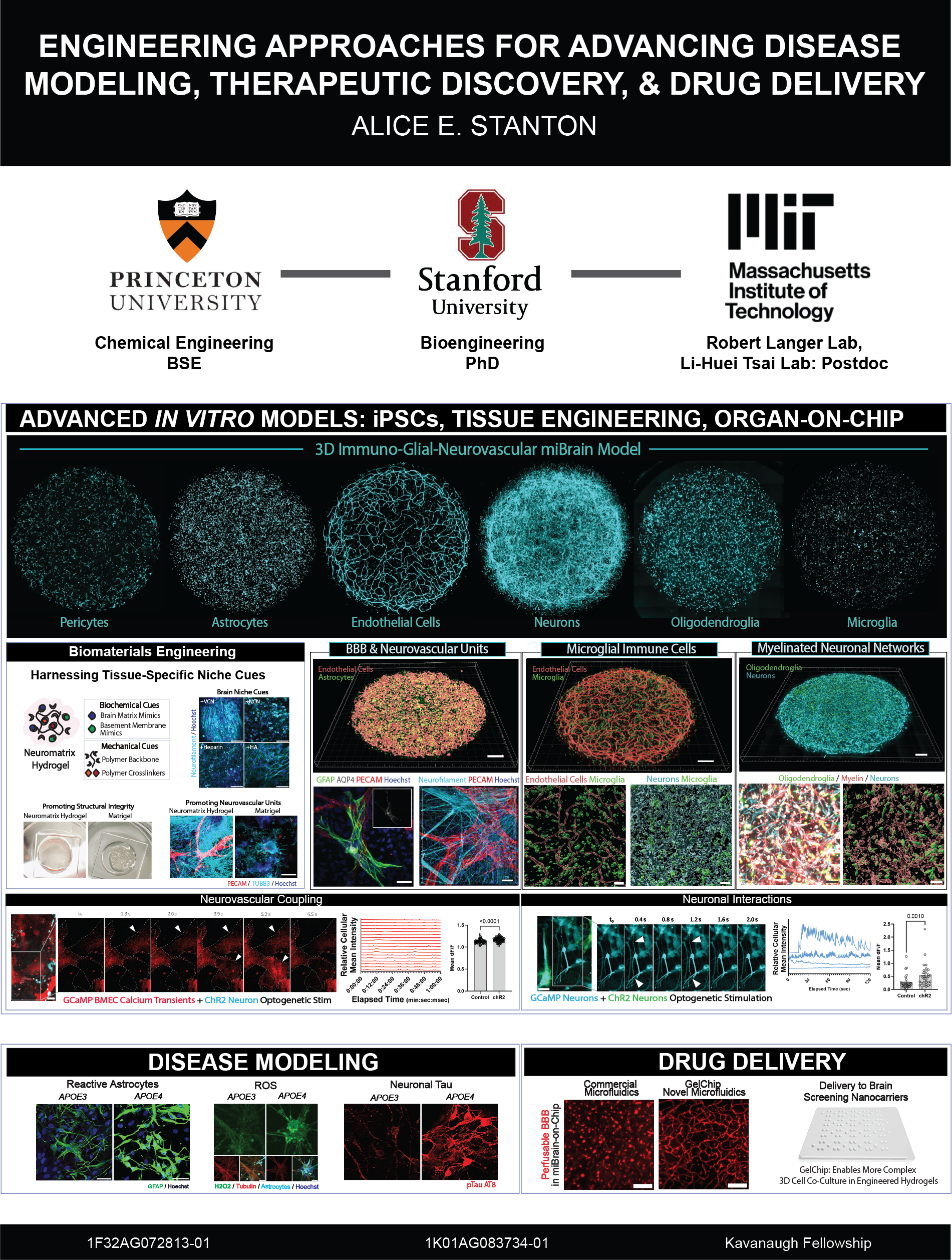(4mz) Engineering Approaches for Advancing Disease Modeling, Therapeutic Discovery, & Drug Delivery
AIChE Annual Meeting
2024
2024 AIChE Annual Meeting
Meet the Candidates Poster Sessions
Meet the Faculty and Post-Doc Candidates Poster Session
Sunday, October 27, 2024 - 1:00pm to 3:00pm
Driven by a desire to improve human health and a passion for innovating new technologies, my research interests are at the intersection of biotechnology and engineered approaches. Three primary arms of my research program will be: (1) the development of advanced in vitro models combining biomaterials engineering approaches, particularly with a focus on harnessing under-utilized tissue-specific niche cues, induced pluripotent stem cell (iPSC) technology, tissue engineering approaches, microfluidic design, and organ-on-chip platforms, particularly, especially in the first years, building on my recently developed 3D immuno-glial-neurovascular miBrain model and miBrain-on-Chip platforms; (2) disease modeling with a particular interest in Alzheimer’s Disease and other neurological diseases, for which I harness patient-specific iPSC lines to construct novel disease models, probe underlying mechanisms, and screen potential therapeutic targets and interventions; and (3) modeling drug delivery and screening new nanocarrier modalities, particularly towards optimizing delivery to the brain and modeling the blood-brain barrier.
Teaching Interests
As an impact-driven engineer, I am enthusiastic about introduction to engineering approaches that incorporate problem-based learning, applications-focused field exposure, and immersive experiences. Further, as a creative thinker, I am passionate about equipping graduate students with tools to approach scientific inquiry, ask good questions, and design projects. The courses I am most interested in teaching are related to tissue engineering, neurotechnology, biomaterials, biofabrication, microfluidics, quantitative physiology, mechanotransduction, kinetics, polymers, and design laboratories.
